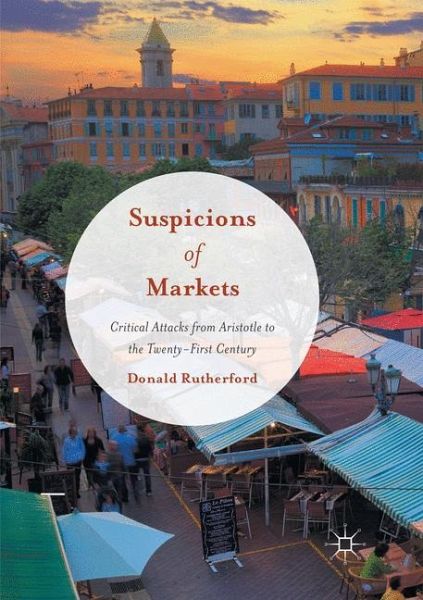
Suspicions of Markets
Critical Attacks from Aristotle to the Twenty-First Century
Versandkostenfrei!
Versandfertig in 6-10 Tagen
83,99 €
inkl. MwSt.
Weitere Ausgaben:

PAYBACK Punkte
42 °P sammeln!
In this work, Rutherford reviews why Adam Smith, Hayek, Mises and others praised economic markets, with a view to understanding, in contrast, historical attacks on markets dating as far back as Aristotle. The market has long been criticized as an inappropriate method of allocation, encouraging market participants to misbehave for the sake of personal gain, and creating an impersonal new market culture. This book traces how such attacks have become more vociferous in recent centuries, especially with the rise of socialism. Most recently the critique has broadened to include toxic markets and th...
In this work, Rutherford reviews why Adam Smith, Hayek, Mises and others praised economic markets, with a view to understanding, in contrast, historical attacks on markets dating as far back as Aristotle. The market has long been criticized as an inappropriate method of allocation, encouraging market participants to misbehave for the sake of personal gain, and creating an impersonal new market culture. This book traces how such attacks have become more vociferous in recent centuries, especially with the rise of socialism. Most recently the critique has broadened to include toxic markets and the excessive marketization of activities hitherto external to the market. Analysing these major criticisms, as well as the value of regulation, utopias and virtue ethics as a means of avoiding future suspicions of markets, the author lays the groundwork for the reader's own assessment of the arguments, and concludes by posing suggestions of how best we might cope with flawedmarkets in the future.














